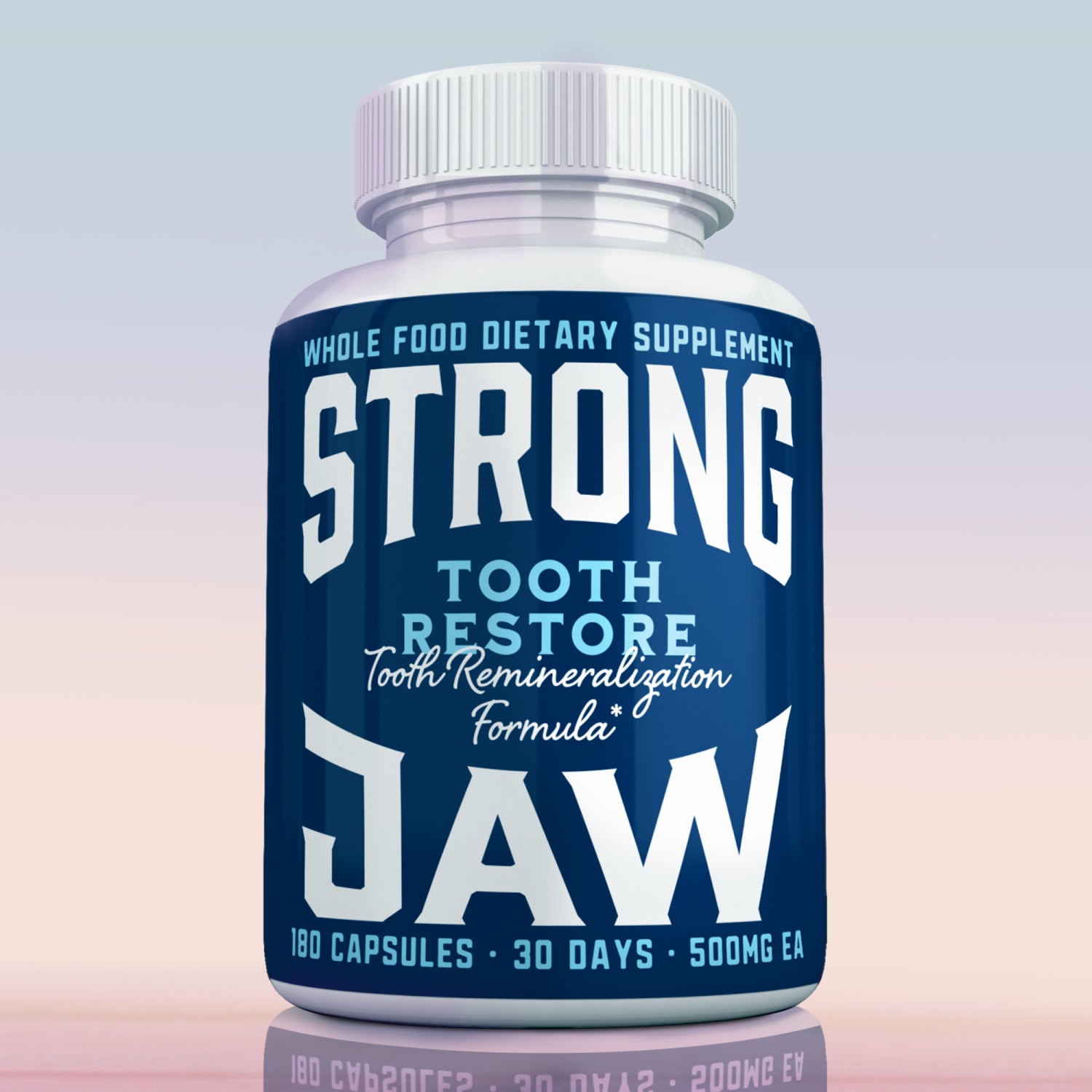Cavities are a common issue that many people face, yet they're often misunderstood. You might go to the dentist, only to be told that you have several cavities. But when you seek a second opinion, you get that's not the case. What gives? Is there more to cavities than meets the eye? This comprehensive guide will delve into what cavities are, how they form, and how you can reverse them naturally through remineralization, using diet and lifestyle changes.
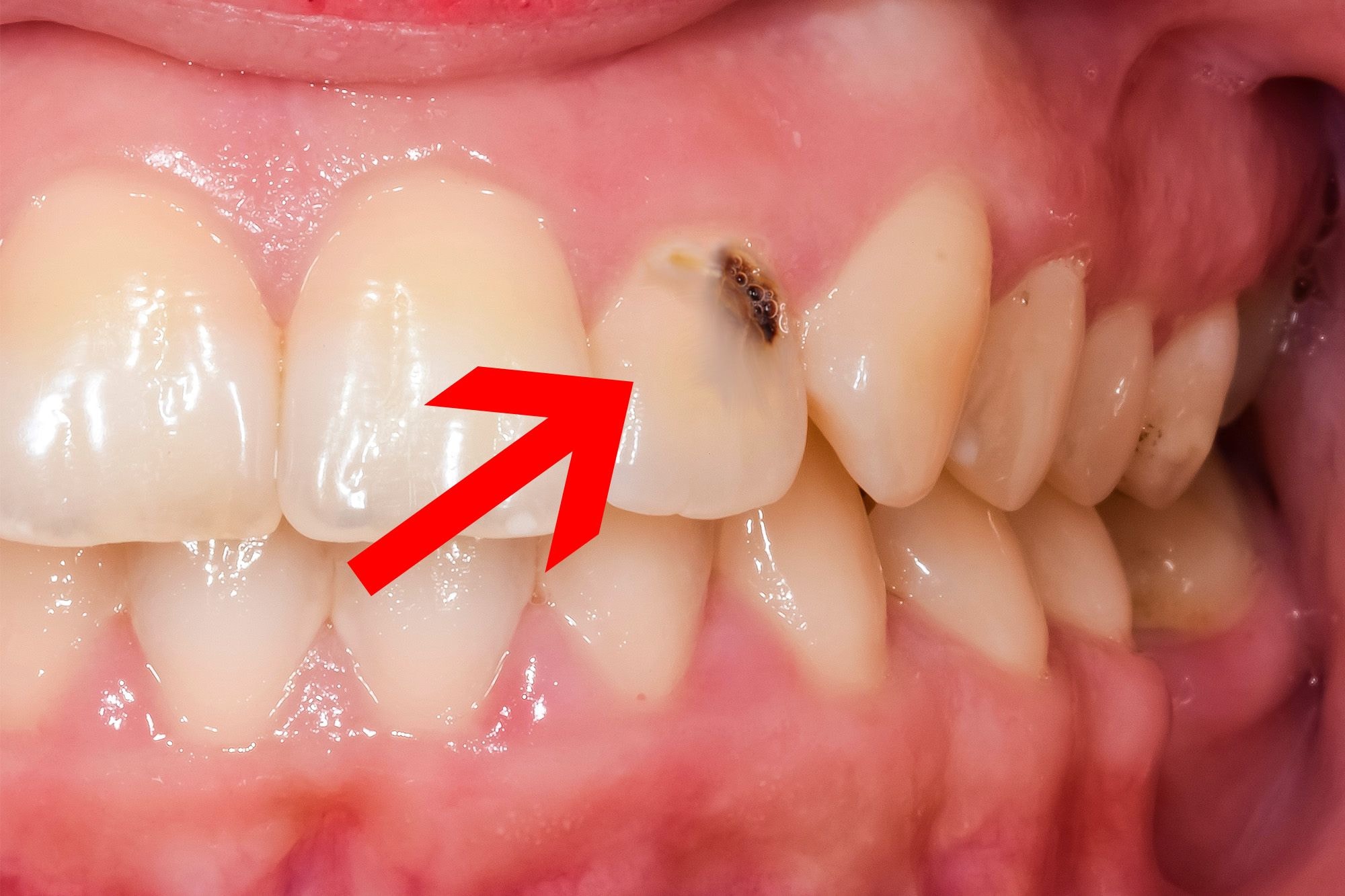
Understanding Cavities and the PH Level of Mouth
At its core, a cavity is a result of demineralization, where the hard outer layer of your tooth, the enamel, begins to break down. This process is primarily driven by bacteria, particularly Streptococcus mutans, which feeds on the sugars in your diet. As these bacteria digest sugar, they produce acid as a byproduct. This acid lowers the pH in your mouth, creating acidic saliva that can lead to tooth erosion, enamel loss, and cavities by leaching minerals like calcium and phosphate from your enamel.
However, it’s crucial to understand that not all demineralization leads to cavities. In the early stages, your teeth can still be saved and even strengthened through a process known as remineralization. This process is the key to reversing the damage before it becomes irreversible.
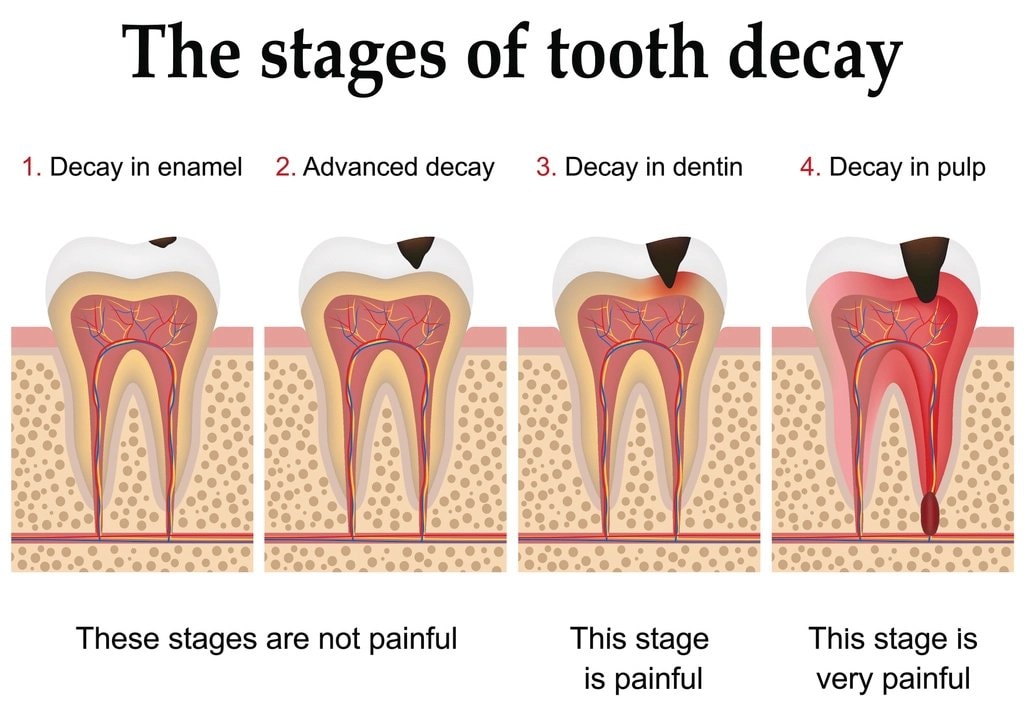
The Role of Bacteria: More Than Just an Invader
The traditional view of cavities is that they are caused by bacteria attacking your teeth. While this is partially true, it’s not the whole story. Bacteria like Streptococcus mutans are indeed involved, but they are not the root cause. The real issue lies in the environment that allows these bacteria to thrive. An acidic saliva pH level can create an environment prone to bacterial growth and dental issues such as acid erosion, enamel loss, and cavities.
In his book Cure Tooth Decay, Ramiel Nagel emphasizes that the primary cause of tooth decay is not bacteria, but rather the lack of essential nutrients in our diet. Dr. Weston A. Price, a pioneering dentist and researcher, found that populations with diets rich in fat-soluble vitamins (A, D, E, and K) and minerals had almost no cavities, despite not practicing modern dental hygiene.
pH Balance: The Mouth’s Constant Battle
Your mouth functions like a battery, constantly shifting between states of demineralization and remineralization. This balance is primarily influenced by the pH levels in your mouth. When the pH drops below 5.5, demineralization begins, which can lead to the erosion of your enamel if not addressed.
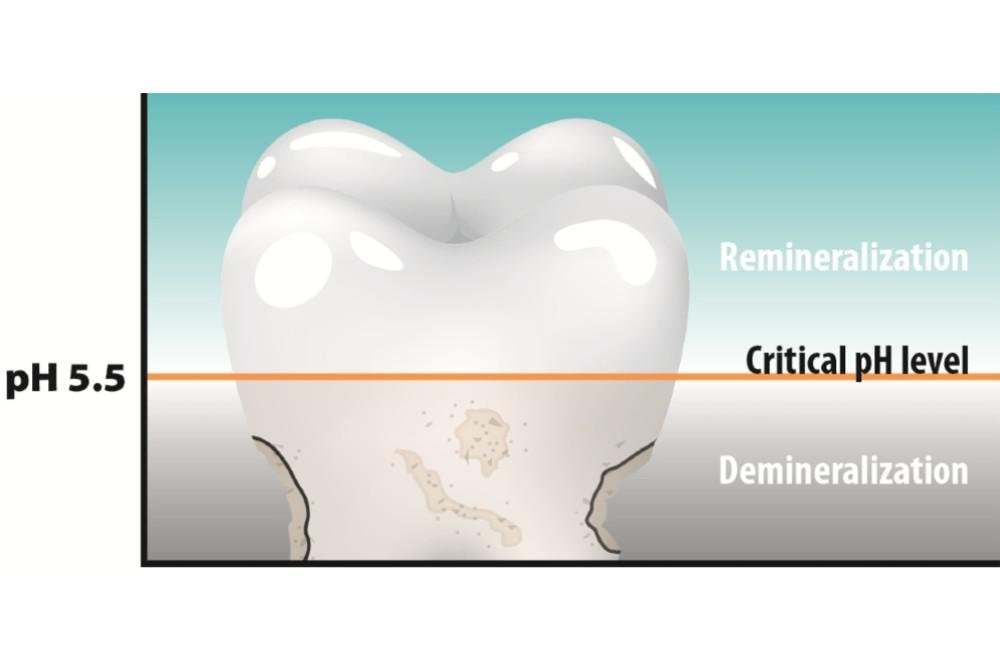
Incorporating alkaline foods into your diet can help maintain a balanced pH in the mouth.
While foods and drinks high in sugar or acid can significantly lower your mouth’s pH, tipping the balance toward demineralization. This is why sugary and acidic foods are often blamed for cavities. However, it’s not just about avoiding these foods but also about creating an environment in your mouth that promotes remineralization.
The Power of Saliva Production: Nature’s Defense Mechanism
Saliva is your body’s natural defense against cavities. It plays a critical role in maintaining a healthy pH level in your mouth and providing the minerals necessary for remineralization. Saliva contains calcium, phosphate, and bicarbonate, which work together to neutralize acids and repair the enamel. Maintaining alkaline saliva is crucial for overall oral health, as it helps prevent the growth of harmful bacteria and promotes a healthier environment in the mouth.
Nasal breathing, which prevents dry mouth, and chewing sugar-free gum, particularly those containing xylitol, can increase saliva production. This helps maintain a neutral or slightly alkaline pH level in your mouth, which is conducive to remineralization.
The Importance of Diet in Mouth Health
Dr. Weston Price’s research in the early 20th century revealed that traditional diets, rich in fat-soluble vitamins and minerals, were key to maintaining dental health. He studied various indigenous populations and found that those who stuck to their ancestral diets had almost no cavities, while those who adopted modern diets saw a significant increase in tooth decay.
These findings were supported by Ramiel Nagel, who argues that a nutrient-dense diet is essential for reversing cavities. Foods rich in vitamins A, D, E, and K, along with minerals like calcium and phosphorus, are crucial for maintaining strong teeth and bones. These nutrients help regulate the body's production of the hormones and enzymes necessary for remineralization.

Remineralization: How to Naturally Strengthen Your Teeth
To reverse the damage caused by demineralization, you need to focus on remineralization. This process involves replenishing the lost minerals in your enamel, strengthening your teeth, and making them more resistant to future decay. Here’s how you can promote remineralization:
1. Hydrate with Water: Drinking water helps wash away food particles and bacteria while keeping your mouth hydrated. This helps maintain a neutral pH and supports saliva production.
2. Use Nano-Hydroxyapatite Toothpaste: This type of toothpaste contains the same minerals found in your teeth and bones, helping to rebuild and strengthen enamel.
3. Chew Xylitol Gum: Xylitol not only increases saliva production but also inhibits the growth of Streptococcus mutans by making it harder for these bacteria to stick to your teeth.
4. Consume a Nutrient-Dense Diet: Include foods rich in fat-soluble vitamins (A, D, E, K) and minerals like calcium and phosphorus. Foods like wild-caught seafood, grass-fed beef, eggs, leafy greens, and raw dairy are excellent choices.
Avoiding the Pitfalls: Acidic Foods and What Not to Do
Just as there are ways to promote remineralization, there are also habits that can accelerate demineralization and lead to cavities. Here’s what to avoid:
1. Dry Mouth: This can be caused by mouth breathing, certain medications, or dehydration. Dry mouth reduces saliva production, making it easier for acids to erode your enamel.
2. Acidic Foods and Beverages: Foods like citrus fruits, soda, and even some sports drinks can lower the pH in your mouth, leading to acid erosion. While some of these foods have health benefits, it’s important to consume them in moderation and rinse your mouth with water afterward.
3. Sugary Snacks: Sugar is the primary food source for acid-producing bacteria in your mouth. Reducing your intake of sugary snacks and drinks is crucial for preventing cavities.
4. Poor Oral Hygiene: Infrequent brushing and flossing allow plaque to build up, providing a breeding ground for bacteria that produce acid.
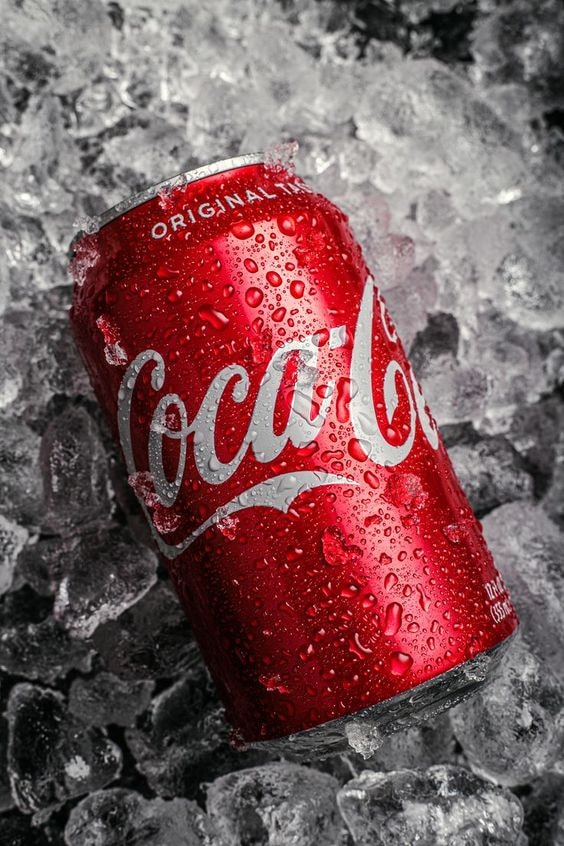
The Role of Fat-Soluble Vitamins: A, D, E, and K
Fat-soluble vitamins play a crucial role in dental health by regulating the body’s use of calcium and phosphorus, which are essential for strong teeth. Vitamin D, for example, helps the body absorb calcium from the diet, while vitamins A and K2 work together to ensure that calcium is properly utilized in the teeth and bones.
Maintaining a normal pH level in the mouth, typically ranging from 6.7 to 7.4, is important for optimal vitamin absorption and dental health. Deviations from the normal pH can indicate oral health issues and increase the risk of enamel erosion.
Dr. Price discovered that the diets of populations with excellent dental health were rich in these vitamins. He also noted that these populations consumed foods high in natural fats, such as butter, cheese, and organ meats, which are excellent sources of fat-soluble vitamins.
The Impact of Modern Diets on Dental Health
Modern diets, rich in processed foods, sugar, and refined carbohydrates, have been linked to a rise in dental issues, including cavities. These foods are low in essential nutrients and disrupt the balance of hormones that regulate tooth mineralization.
Regulating the pH of your mouth is crucial to counteract the effects of modern diets, as an imbalanced pH can lead to tooth decay and enamel erosion.
When you consume a diet high in processed foods, your body’s ability to produce the hormones and enzymes needed for remineralization is compromised. This leads to a state of chronic demineralization, where your teeth are constantly losing minerals and becoming more susceptible to decay.
Traditional Diets and Their Protective Effect
In contrast, traditional diets, like those studied by Dr. Price, provided all the necessary nutrients for maintaining strong teeth and healthy gums. These diets were rich in whole foods, including raw dairy, seafood, organ meats, and fermented foods, all of which are excellent sources of fat-soluble vitamins and minerals.
The pH scale, which ranges from 1 to 14, measures the acidity or alkalinity of substances. A balanced pH, typically around 7, is crucial for oral health as lower pH levels can lead to enamel erosion and cavities. Traditional diets help maintain a balanced saliva pH, protecting against dental issues.
Populations that followed these diets had very low rates of tooth decay, despite not using modern dental hygiene practices. This highlights the importance of diet in maintaining dental health and preventing cavities.
How Hormones Affect Your Dental Health
Hormones play a significant role in regulating the process of tooth remineralization. For example, the parotid hormone, released by the parotid glands in the mouth, stimulates the flow of a mineral-rich fluid through tiny channels in the teeth. This fluid helps clean the teeth and provides the minerals needed for remineralization.
Maintaining a balanced saliva pH is crucial for hormone regulation and dental health. An alkaline saliva pH helps prevent enamel erosion and cavities, while acidic foods and beverages can negatively impact saliva pH.
When your diet is deficient in essential nutrients, your body’s ability to produce and regulate these hormones is impaired. This can lead to a decrease in the flow of remineralizing fluid, making your teeth more susceptible to decay.
The Importance of Mineral-Rich Foods
To support the process of remineralization, it’s essential to consume a diet rich in minerals like calcium and phosphorus. These minerals are the building blocks of strong teeth and are necessary for repairing and maintaining enamel. Maintaining a saliva pH that's alkaline is also beneficial for better mineral absorption and dental health, as it helps balance oral health by reducing the impact of acidic beverages like alcohol and caffeine.
Foods like bone broth and raw dairy products are excellent sources of these minerals. Additionally, consuming foods high in vitamin D, such as wild-caught salmon and egg yolks, helps ensure that these minerals are properly absorbed and utilized by the body.
Practical Steps to Prevent and Reverse Cavities
Reversing cavities and preventing new ones requires a holistic approach that includes diet, oral hygiene, and lifestyle changes. Here are some practical steps you can take:
Maintaining a balanced saliva pH level is crucial for preventing cavities, as a pH level of 7.5 or higher helps remineralize enamel and prevent tooth decay.
1. Optimize Your Diet: Focus on nutrient-dense foods that are rich in fat-soluble vitamins and minerals. Avoid processed foods, sugar, and refined carbohydrates.
2. Practice Good Oral Hygiene: Brush and floss regularly, and consider using a toothpaste with nano-hydroxyapatite to help rebuild enamel.
3. Stay Hydrated: Drink plenty of water throughout the day to keep your mouth hydrated and maintain a healthy pH level
4. Chew Sugar-Free Gum: Chewing gum after meals can help increase saliva production and neutralize acids.
5. Consider Nasal Breathing: Breathing through your nose helps prevent dry mouth and supports saliva production.
When to Seek Professional Help
While it’s possible to reverse early-stage cavities through diet and lifestyle changes, there are times when professional intervention may be necessary. If you have a cavity that has progressed to the point of causing pain or sensitivity, it’s important to consult with a dentist.
However, even if you need a filling or other dental treatment, continuing to focus on your diet and oral hygiene can help prevent future cavities and maintain your overall dental health.
The Long-Term Benefits of a Healthy Mouth
Maintaining a healthy mouth is not just about preventing cavities; it’s also about supporting your overall health. Poor dental health has been linked to a range of systemic health issues, including heart disease, diabetes, and respiratory infections.
By taking steps to remineralize your teeth and prevent cavities, you’re not only protecting your smile but also supporting your overall well-being.
Empower Yourself to Take Control of Your Dental Health
Reversing cavities and remineralizing your teeth naturally is entirely within your reach. By focusing on a nutrient-rich diet, maintaining proper oral hygiene, and creating a healthy environment in your mouth, you can protect your teeth from decay and even reverse early damage.
Remember, your dental health is in your hands. With the right knowledge and tools, you can take control of your oral health and enjoy a lifetime of healthy, cavity-free teeth.
